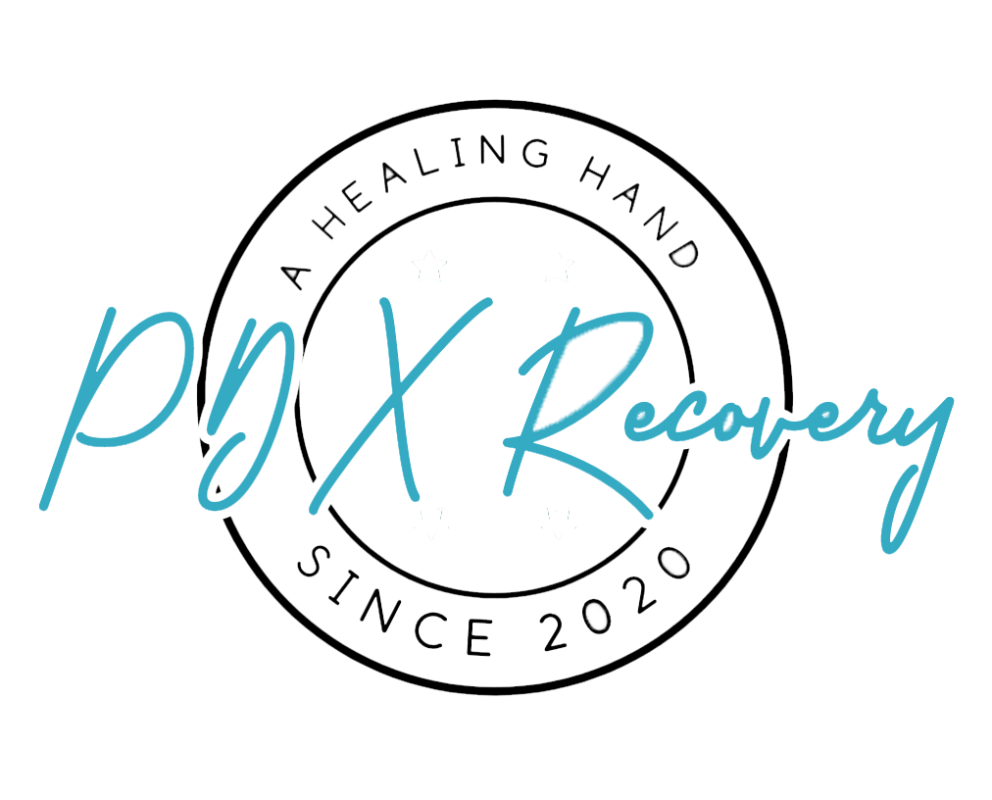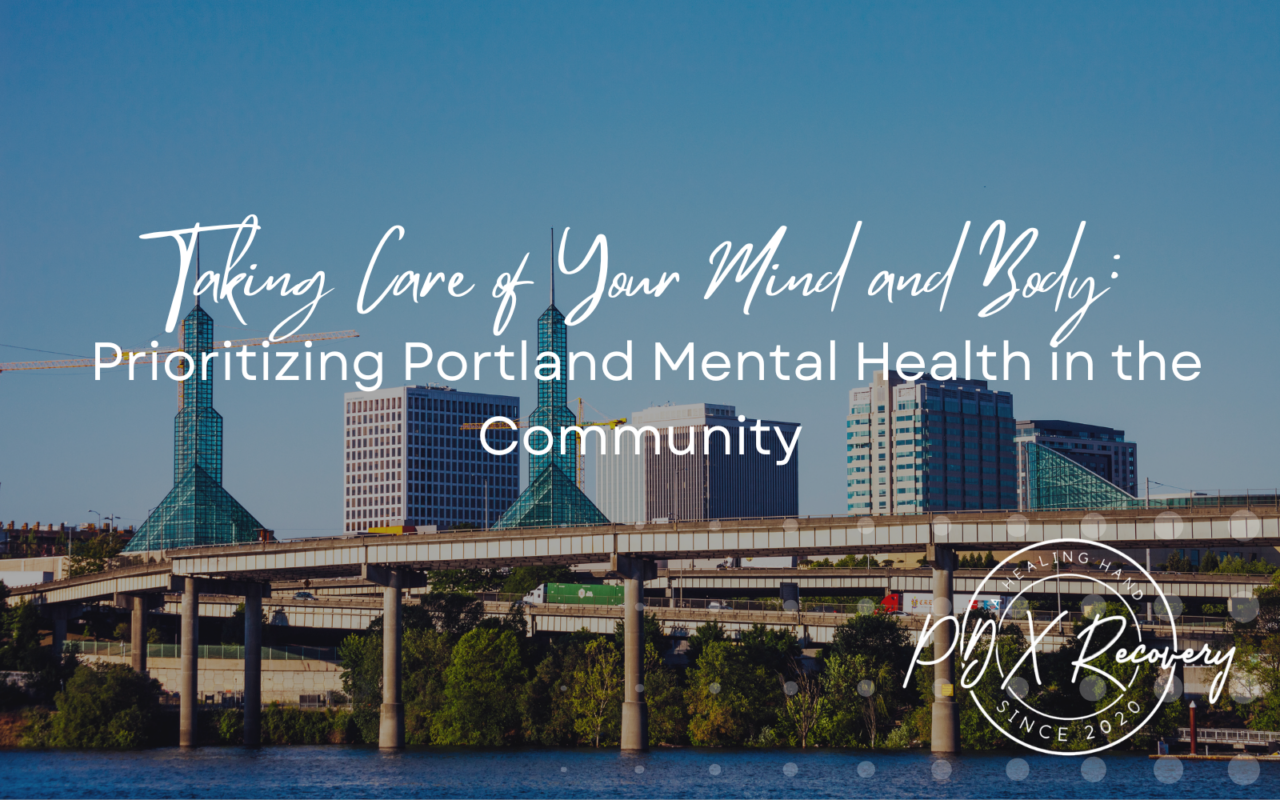In today’s fast-paced world, balancing mental and physical health has become increasingly important. Living in a vibrant city like Portland, with its rich culture and active lifestyle, offers unique opportunities and challenges for maintaining this balance. At PDX Recovery, we believe that prioritizing both mental and physical health is crucial for a thriving community. This comprehensive guide explores the various facets of Portland mental health and provides practical advice for taking care of your mind and body.
Portland is renowned for its lush green spaces, eclectic food scene, and progressive values. However, like many urban areas, it also faces significant mental health challenges. The pressures of modern life, coupled with environmental stressors, can impact the mental well-being of its residents. PDX Recovery is committed to supporting the community by promoting Portland mental health awareness and providing resources for holistic wellness. This guide aims to offer insights and practical tips to help you prioritize your mental and physical health.
Understanding Portland’s Mental Health Landscape
Portland, with its diverse population and dynamic lifestyle, presents unique mental health needs. Factors such as socioeconomic disparities, housing instability, and environmental stressors contribute to the Portland mental health landscape in the city. Understanding these factors is the first step in addressing them effectively.
The Role of Mental Health in Community Well-being
Mental health is a cornerstone of overall well-being. When individuals are mentally healthy, they are more resilient, productive, and capable of contributing positively to their communities. Mental health impacts every aspect of our lives, from our relationships to our work performance. By prioritizing Portland mental health, we can foster a more supportive and inclusive environment in Portland, where everyone feels valued and understood. Investing in mental health resources and services not only benefits individuals but also strengthens the community as a whole, creating a more vibrant and connected society.
Common Issues and Challenges
Portland faces a range of mental health challenges, including anxiety, depression, substance abuse, and homelessness. These issues are often interconnected and require comprehensive, community-based approaches to address them effectively. Anxiety and depression affect many residents, contributing to a growing need for accessible mental health services. Substance abuse often exacerbates these conditions, leading to a cycle of dependency and mental health deterioration. Additionally, the city’s homelessness crisis creates significant barriers for individuals seeking help, highlighting the urgent need for coordinated efforts from healthcare providers, social services, and local government to create sustainable solutions.
Addressing Anxiety and Depression
Anxiety and depression are prevalent mental health issues in Portland, exacerbated by factors such as economic uncertainty, social isolation, and the ongoing impact of the global pandemic. These conditions can manifest in various ways, including persistent sadness, excessive worry, and difficulty concentrating. Recognizing the signs and seeking timely intervention, such as therapy, medication, or support groups, can significantly improve outcomes and enhance overall well-being. It is also important for communities to foster environments that promote mental health awareness and support.
The Intersection of Substance Abuse and Mental Health
Substance abuse is both a cause and a consequence of mental health issues. The complex relationship between addiction and mental health disorders often creates a vicious cycle, where substance use exacerbates mental health challenges, and untreated mental health conditions can lead to increased substance abuse. Portland has seen a rise in substance abuse cases, necessitating integrated treatment approaches that address both mental health and addiction. Combining therapy, medical treatment, and support groups can provide a more holistic and effective strategy for those affected by these intertwined issues.
Homelessness and Mental Health
Homelessness is a critical issue in Portland, with a significant proportion of the homeless population experiencing mental health disorders. Addressing mental health is essential in providing effective support and sustainable solutions for homelessness.
Strategies for Improvement
Improving Portland mental health requires a multi-faceted approach, involving individuals, communities, and policymakers. Here are some strategies that can make a difference.
Promoting Mental Health Awareness
Raising awareness about mental health issues and reducing stigma are crucial steps in encouraging individuals to seek help. Community campaigns, workshops, and public discussions can play a significant role in normalizing mental health conversations. By bringing these issues to the forefront, we can create an environment where people feel safe to discuss their mental health without fear of judgment.
Access to Mental Health Services
Ensuring access to affordable and quality mental health services is vital for everyone. Expanding the availability of counselors, therapists, and support groups can help meet the growing demand for mental health care. Government initiatives and private sector partnerships can provide the necessary funding and infrastructure to make mental health services more accessible. Telehealth options can also break down barriers, allowing people in remote or underserved areas to receive the help they need.
Community-Based Support Systems
Building strong community support systems can provide individuals with the resources and encouragement they need to manage their mental health effectively. Initiatives such as peer support groups and community centers are valuable assets. By fostering a sense of belonging and mutual support, these community-based programs can help individuals feel less isolated. Educational workshops and social activities can further engage community members and provide practical tools for maintaining Portland mental health.
Mindfulness and Self-Care Practices
Incorporating mindfulness and self-care practices into daily routines can significantly enhance mental well-being. Activities such as meditation, yoga, and journaling are effective ways to manage stress and improve mental clarity. These practices can help individuals develop a deeper understanding of their thoughts and feelings, leading to better emotional regulation. Additionally, promoting a balanced lifestyle that includes adequate sleep, healthy eating, and physical exercise can further support mental health. Encouraging people to take time for themselves and prioritize their well-being is a simple yet powerful message.
The Role of Physical Health in Mental Well-being
Physical health and mental health are intrinsically linked. Maintaining a healthy lifestyle through regular exercise, balanced nutrition, and adequate sleep can positively impact mental health.
Exercise and Mental Health
Regular physical activity has been shown to significantly reduce symptoms of anxiety and depression, offering a natural and effective way to enhance mood and mental clarity. Portland’s numerous parks, trails, and recreational facilities provide ample opportunities for outdoor exercise, ranging from jogging and cycling to group sports and yoga sessions in the park. Engaging in these activities not only promotes physical health but also fosters a sense of community and connection, which are vital for mental well-being.
Nutrition and Mental Health
A balanced diet is essential for maintaining optimal mental health. Nutrient-rich foods, including fruits, vegetables, whole grains, and lean proteins, can boost mood, improve energy levels, and support cognitive function. Portland’s vibrant food scene, known for its emphasis on locally-sourced and organic ingredients, offers a plethora of options for healthy eating. Exploring farmers’ markets, health-conscious restaurants, and cooking workshops can be both enjoyable and beneficial, providing an opportunity to learn more about nutrition while indulging in delicious and wholesome meals.
Sleep and Mental Health
Quality sleep is crucial for mental health, affecting everything from mood and concentration to overall physical health. Establishing a consistent sleep routine, such as going to bed and waking up at the same time every day, and creating a restful sleep environment by minimizing noise and light can greatly enhance overall well-being. In Portland, the serene environment and slower pace of life can help in achieving better sleep patterns, thus reducing the risk of mental health issues and improving daily functioning.
Creating a Supportive Environment for Portland Mental Health
A supportive environment is key to mental health. This involves fostering positive relationships, creating safe spaces, and promoting inclusivity within the community.
Building Strong Relationships
Healthy relationships provide emotional support and a sense of belonging, which are crucial for mental well-being. Engaging in community activities, such as volunteering, participating in clubs, or attending social events, can help build connections with family, friends, and new acquaintances. These interactions not only offer companionship but also provide a network of support during challenging times, ultimately strengthening mental health and resilience.
Creating Safe Spaces
Safe spaces where individuals feel accepted, valued, and understood are essential for mental well-being. These spaces can be physical locations, such as community centers, support groups, or even quiet areas in public places where people can relax and feel secure. Additionally, online communities and forums provide a platform where people can share their experiences, seek advice, and receive support without fear of judgment or discrimination. Such environments encourage open communication and help individuals feel less isolated.
Promoting Inclusivity
Inclusivity and diversity are vital for building a healthy and vibrant community. Embracing different cultures, backgrounds, and perspectives enriches the community and promotes mental health by fostering a sense of acceptance, inclusion, and belonging. Creating programs and events that celebrate diversity, educating community members about different cultures, and ensuring that everyone has a voice and representation are key strategies to promote inclusivity. By valuing and respecting each individual’s unique contributions, the community becomes more cohesive and supportive, benefiting everyone’s mental health.
Resources for Mental Health Support
Portland offers a range of resources for mental health support. Here are some valuable options for those seeking help.
PDX Recovery Services
At PDX Recovery, we provide comprehensive mental health services, including counseling, therapy, and support groups. Our team of experienced professionals is dedicated to helping individuals achieve mental well-being. We offer personalized treatment plans tailored to each client’s unique needs, ensuring they receive the most effective care. Our supportive environment fosters healing and growth, empowering clients to overcome challenges and improve their quality of life.

How to Support Others with Their Mental Health
Supporting others in their mental health journey can have a profound impact. Here are some ways to offer meaningful support.
Listening and Offering Empathy
Listening without judgment and offering empathy can provide significant comfort to someone struggling with mental health issues. Often, individuals facing these challenges feel isolated and misunderstood, and your compassionate presence can help alleviate some of that burden. By actively listening and showing genuine concern, you can create a safe environment where they feel valued and heard. Sometimes, just being there for someone, without trying to fix their problems, can make a world of difference, offering them a glimmer of hope and the strength to keep going.
Encouraging Professional Help
Encouraging individuals to seek professional help when needed is crucial for their well-being and mental health. Gently suggesting therapy or counseling can be a supportive way to help someone take the first step towards recovery. Professional help offers a safe space for individuals to explore their feelings, understand their challenges, and develop coping strategies. It can make a significant difference in their journey towards healing and personal growth. Providing reassurance and expressing genuine concern can also help ease their apprehensions about seeking help.
Promoting Self-Care
Encouraging self-care practices can empower individuals to take charge of their mental health. By promoting a proactive approach, we can help people recognize the importance of maintaining their well-being. Sharing resources, such as articles, support groups, and professional guidance, alongside suggesting activities like regular exercise, mindfulness techniques, and engaging in hobbies, can provide substantial benefits. These practices not only reduce stress but also foster a sense of accomplishment and joy, contributing to a healthier, more balanced life.
Frequently Asked Questions
What are the common mental health issues in Portland?
Portland faces various mental health issues, including anxiety, depression, substance abuse, and homelessness. These challenges require comprehensive, community-based approaches for effective management.
How can I improve my mental health in Portland?
Improving mental health involves adopting healthy lifestyle practices, seeking professional help when needed, and engaging in community support systems. Activities such as regular exercise, balanced nutrition, mindfulness, and self-care can significantly enhance mental well-being.
How can physical health impact mental health?
Physical health and mental health are closely linked. Regular exercise, balanced nutrition, and adequate sleep can positively impact mental well-being by reducing symptoms of anxiety and depression and improving overall mood and cognitive function.
How can I support someone with their mental health?
Supporting someone with their mental health involves listening without judgment, offering empathy, encouraging professional help, and promoting self-care practices. Providing a safe and supportive environment can make a significant difference.
What role does the community play in mental health?
The community plays a crucial role in mental health by fostering supportive environments, raising awareness, reducing stigma, and providing access to mental health services. Strong community support systems and inclusive practices contribute to overall mental well-being.
PDX Recovery’s Commitment
Prioritizing mental health is essential for a thriving community. By understanding the unique mental health needs of Portland and adopting holistic wellness practices, we can foster a supportive and inclusive environment for all residents. At PDX Recovery, we are dedicated to promoting mental health awareness and providing comprehensive support to help individuals achieve mental and physical well-being. Together, we can build a healthier, happier Portland. For more information visit our website https://pdx-recovery.com/ or call us at (971) 256-9087.






